A New York City school has sought to ax a list of words, encouraging kids to stop using them in an “inclusive language” guide. While vocabulary is important, does this list go too far?
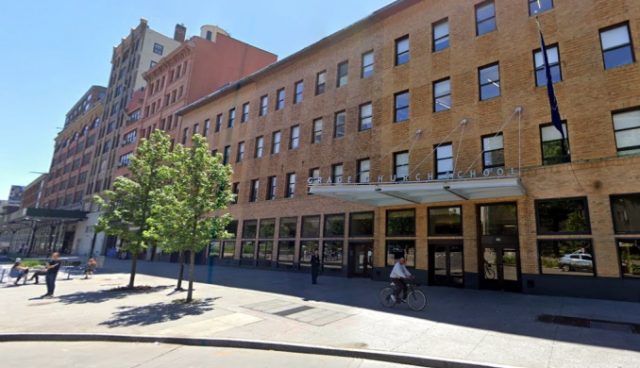
The Grace Church School — a Manhattan private school in New York City, New York, which offers academic courses for junior kindergarten through 12th grade — has raised some eyebrows with an “inclusive language” guide that is aimed at removing common words from kids’ vocabulary in hopes of increasing “inclusivity.”
While there are many words that parents would rather their children not use, the ones on this list likely won’t come to mind. In fact, I just used one. Did you catch it? According to the 12-page “inclusive language” guide issued by The Grace Church School in Noho, I shouldn’t have used the word “parent.” But, that’s not all.

In addition to “parent,” other words that children and staff are being discouraged from using according to the guide and the school’s mission of inclusivity include “mom” and “dad” because these words make “assumptions” about the kids’ home lives. “Husband,” “wife,” “boyfriend,” and “girlfriend” are also on the chopping block.
“The detailed guide recommends using the terms ‘grown-ups,’ ‘folks,’ ‘family’ or ‘guardians’ as alternatives to ‘mom,’ ‘dad’ and ‘parents,'” the NY Post explained. “It also suggests using ‘caregiver’ instead of ‘nanny/babysitter.'”
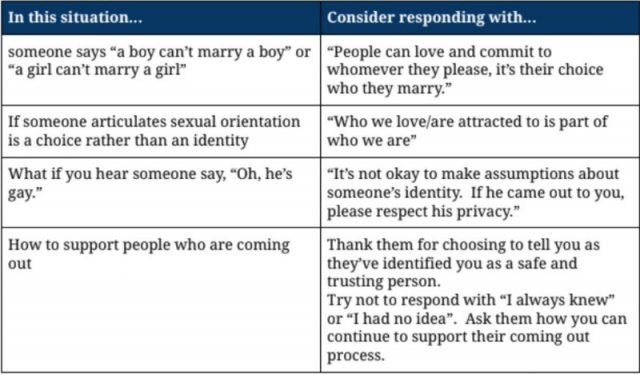
“Families are formed and structured in many ways,” the guide reads. “At Grace Church School, we use inclusive language that reflects this diversity. It’s important to refrain from making assumptions about who kids live with, who cares for them, whether they sleep in the same place every night, whether they see their parents, etc.”
In addition, the guide addresses gender language, discouraging the students and staff from using words and praises like “boys and girls,” “ladies and gentlemen,” and “guys.” Sexual orientation, race, and ethnicity are also addressed, and the document instructs students and teachers how to use appropriate terms.
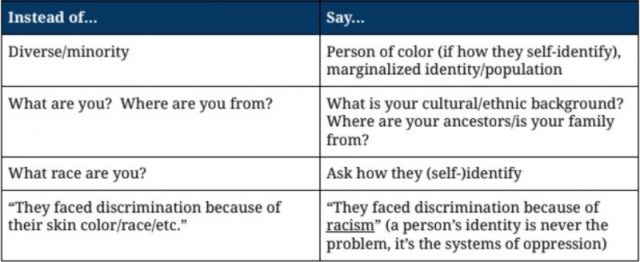
For example, “hermaphrodite” is listed as an “outdated term” that should be replaced with “intersex.” Rather than asking a person, “What are you?” or, “Where are you from?” the guide dictates that the questions should be, “What is your cultural/ethnic background? Where are your ancestors/is your family from?”
In addition to telling students and staff what they can say, the guide also seems to dictate what they are allowed to think. Rather than saying members of the same sex can’t get married, the guide dictates that “People can love and commit to whomever they please, it’s their choice who they marry,” and, “Who we love/are attracted to is part of who we are” rather than sexual orientation being a “choice.”
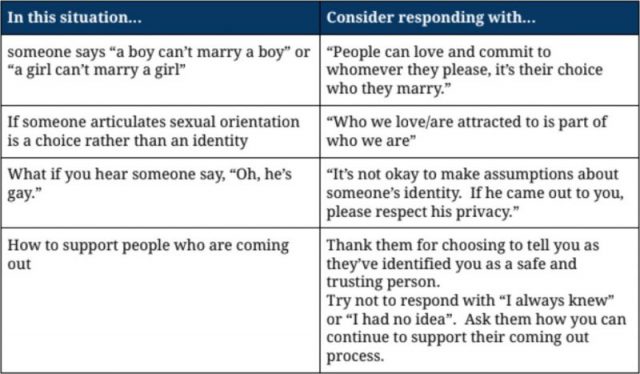
Other “outdated terms” addressed in the guide include “colorblind” as it pertains to race, “caucasian,” and “colored people.” Instead, Caucasians should be referred to as “white” and “people of color” should replace “colored people.” The guide also discourages the use of “Merry Christmas” and “Happy Holidays,” telling students and staff to say, “Have a great break,” instead.
Of course, not everyone agrees with the “inclusive language” guide — especially coming from a private school of “privileged” students. However, the school has defended the directive, telling the City Journal that its goal is to “promote a sense of belonging for all of our students.” In a statement to the outlet, the Rev. Robert Pennoyer, assistant head of school, said, “Grace is an Episcopal school. As part of our Episcopal identity, we recognize the dignity and worth common to humanity.”
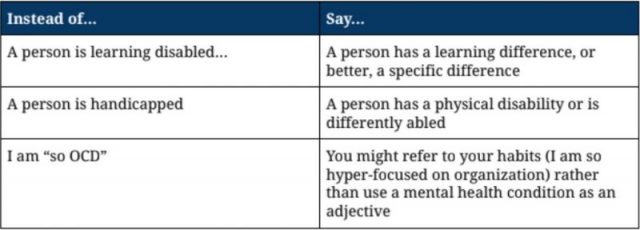
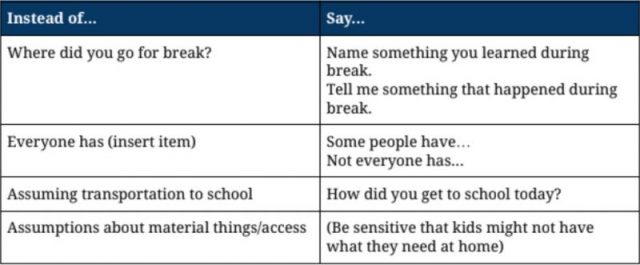
That reassurance did little to quell the concern some have over “speaking woke,” which is described as “a highly complex and ever-evolving language,” according to the outlet’s lengthy article on “The Miseducation of America’s Elites.” As one concerned math teacher said, kids are “being educated in resentment and fear.” Calling it a “cult,” he added, “It’s extremely dangerous.” But, perhaps it’s the words of an unnamed educator from thousands of miles away that truly summed up this trend perfectly:
“It teaches people who have so much to see themselves as victims. They think they are suffering oppression at one of the poshest schools in the country.”
Is it really “inclusive” at all when those pushing for this change have a pattern of shaming anyone who shares anything that remotely dissents from the group narrative? On a personal note, as a child who grew up in a broken home, it did not hurt me to hear “mom,” “dad,” or “parents.” Perhaps that’s because I didn’t view myself as a victim of my circumstances or have the expectation that everyone around me should consider my personal situation before communicating with me. Is this really the right path forward? You decide.
Source: Tap Worthy Happenings

0 Comments